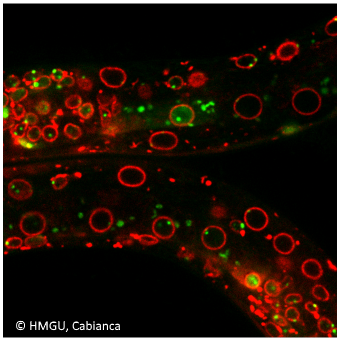Project description
Most of the reactions that modify chromatin require metabolites as cofactors, suggesting an intimate link between epigenetic regulation and the metabolic state of a cell.
We will make use of the nematode C. elegans as a model system to study how the nutritional status of a multicellular organism impacts on its epigenome.
By applying high-resolution live microscopy you will examine nuclear architecture changes triggered by nutritional stress and screen for key regulators of such events. Next, the analysis of relevant mutants will allow you to investigate functionality of the pathway by monitoring changes in chromatin, transcriptome and organismal homeostasis.
The project will involve state-of-the art technologies such as confocal microscopy, CRISPR-Cas9 genome engineering and NGS techniques like RNAseq and ChIPseq.
We are looking for a highly motivated PhD student willing to undertake a challenging project. You will be part of a newly established and very enthusiastic lab, integrated in the Institute of Functional Epigenetics.

Related literature
- Cabianca DS et al. (2019). Active chromatin marks drive spatial sequestration of heterochromatin in C. elegans nuclei. Nature. 569(7758): 734-739.
